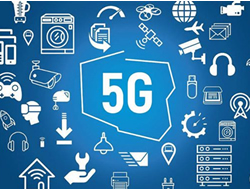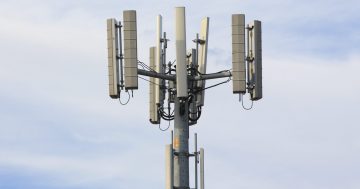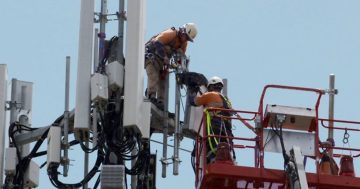Jack Delaney* explains 5G technology — the next generation phone network — which is due to start rolling out in Australia this year.
 Not too long ago, having the internet on your mobile phone was a luxury.
Not too long ago, having the internet on your mobile phone was a luxury.
But as is typical with technology, it has become something we take for granted.
I got my first phone after starting year seven at high school.
That was back before phones had fancy names like the Galaxy or Pixel — all I know is that it was made by Samsung and it had a cool blue LED light that flashed upon receiving a text message.
My trusty Samsung was light on features in comparison to today’s phones.
By that, I mean it could send text messages and make phone calls, came with a couple of built-in games and had a pretty killer alarm clock.
But it had one feature I considered groundbreaking: the internet.
At the time, circa 2007, using the internet on your phone was a bit different to how it is today.
Of course, there was no Instagram or Twitter or Buzzfeed to visit, but that’s not what I mean.
A beginner’s guide to 4K technology and UHD TVs
Unless you were rich, the chances are that your mobile plan probably didn’t include any internet data.
If you were lucky enough to have sufficient data, the experience wasn’t all too great.
You would type a web address and watch in awe as the webpage unravelled on-screen like a rusty garage door.
Back then it wasn’t so much web surfing as it was web chugging.
That terrible experience was made possible by second-generation and third-generation (2G and 3G respectively) cellular technology created to increase the speed and responsiveness of wireless data networks.
What is 5G technology?
Fifth-generation wireless (5G) is the latest iteration of that cellular technology.
Australian telcos have been trialling the next generation phone network for a few years now and 2019 marks the year that commercial services finally go live.
Similar to 4G, which was the last revolution in network tech, 5G is focused on mobile data.
It will concentrate on providing faster network speeds, lower latency and more simultaneous connections.
The possibilities of 5G technology are endless.
As with most new technologies, predictions can be taken with a grain of salt — but what is being spoken about is pretty impressive.
5G has the potential to advance any industry that uses the internet, from self-driving cars to manufacturing and medicine.
For example, 5G will enable surgeons to operate on a patient in another country by using a virtual reality headset and robots.
Oh, and it’ll also make our phone internet faster and stuff.
What are the benefits of 5G?
As hinted at previously, 5G technology is going to have some pretty major benefits.
It promises three main improvements that will affect you in your day-to-day life.
Faster speeds
5G mobile networks will be able to reach download speeds of 20 gigabits per second (Gbps).
That’s a larger file size than a Blu-ray movie in a second.
Ridiculous.
Of course, the precise speeds will depend on what network the user is on, the number of devices using the network and the capabilities of the device they are using.
Not to worry though, the 5G tech specs promise that individual users will have download speeds of at least 100 Mbps.
To put that into perspective, 100 Mbps is the fastest possible speed on the National Broadband Network (NBN).
Lower latency
The 5G network will offer latency of one millisecond or lower.
Latency refers to the amount of time it takes the information to get from your phone to the internet and back again.
The normal latency for the current 4G network is about 60 ms, so 5G will make a noticeable difference to your web browsing.
This kind of advancement will be vital for the evolution of things like Telstra’s advanced driver assist technology, where every millisecond is essential to analyse and transfer data.
A single millisecond can stop a car crash, so imagine what 59 can do.
More concurrent connections
5G will also allow more devices to be connected to the network at the same time.
This is a development that will only become more useful as more users and businesses adopt the technology.
Simultaneous connections are essential in the creation and growth of the Internet of Things, including autonomous vehicles, smart machinery and healthcare services.
When will Australia get 5G networks?
Many Aussie telcos will be flicking the switch on 5G this year.
Telstra and Optus are committed to making the service available this year, while Vodafone is going to hold off until 2020.
The chances are that 5G technology will be rolled out in major cities first, so if you’re living in the Aussie outback, I wouldn’t hold my breath.
It is expected that 5G-capable phones will begin rolling out on Aussie shores this year, too.
It’s safe to say that when it is eventually released, plans and contracts offering 5G will be significantly more expensive.
That’s always the way with early adoption.
Don’t worry though — 3G and 4G will continue to coexist alongside 5G for the foreseeable future, with 3G networks expected to hang around until at least 2020.
* Jack Delaney is a writer for Techly.
This article first appeared at www.techly.com.au.











